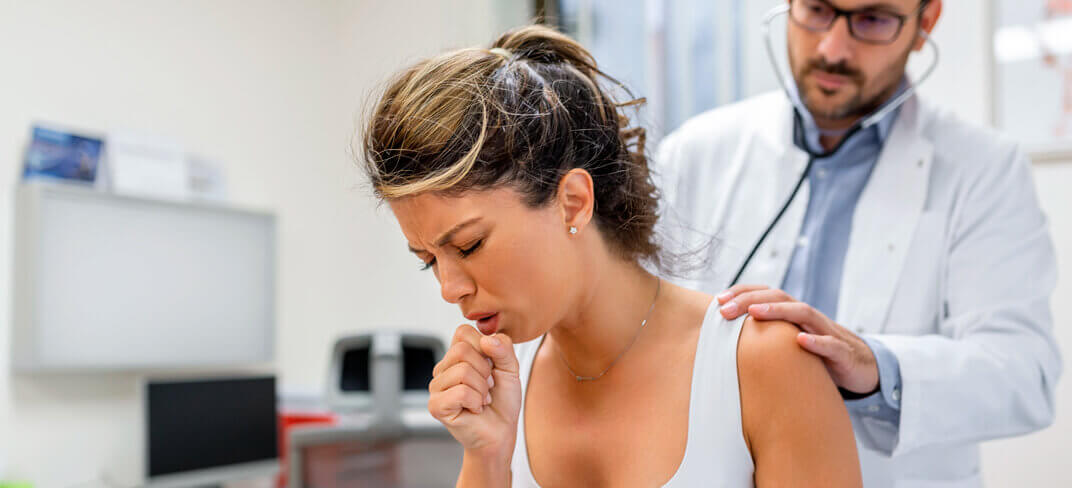Pneumonia: Is It Contagious? Symptoms, Causes and Prevention

Some respiratory illnesses—like colds or the flu—are well known to be contagious. But what about pneumonia? The answer is: it depends on the type of infection.
Certain forms of pneumonia—bacterial pneumonia and viral pneumonia—can be contagious, because the germs that cause them can spread from person to person. Other types, such as fungal pneumonia or parasitic pneumonia, are not contagious.
The early symptoms of pneumonia often resemble those of a cold or flu: fever, cough, fatigue, and breathing difficulties. However, unlike milder infections, symptoms of pneumonia tend to last longer and worsen over time.
People at higher risk for severe pneumonia include:
- Children under 5 years old
- Adults over 65
- Individuals with weakened immune systems or chronic disease
Adopting preventive habits and seeing a physician promptly at the first signs can help avoid complications and limit spread.
What Is Pneumonia?
Pneumonia is an infection of one or both lungs. It occurs when bacteria, viruses, or fungi infect lung tissue, causing inflammation and fluid or pus buildup in the alveoli—the tiny sacs responsible for gas exchange.
This condition can make breathing difficult and cause symptoms like persistent cough, high fever, chills, and chest pain.
Types of Pneumonia
Pneumonia is classified by the pathogen responsible for the infection. Knowing the type helps determine contagiousness and appropriate treatment.
Bacterial Pneumonia
This is the most common type in adults. It can be caused by:
- Streptococcus pneumoniae (pneumococcal pneumonia): often presents with high fever, chills, and productive cough
- Mycoplasma pneumoniae: causes a milder form called “atypical pneumonia” or “walking pneumonia,” with more gradual symptoms
These bacterial forms can be contagious, spreading via respiratory droplets from coughs or sneezes.
Viral Pneumonia
Caused by respiratory viruses, viral pneumonia affects people of all ages. Common culprits include:
- Influenza viruses
- SARS-CoV-2 (COVID-19)
- Rhinovirus (common cold)
- Respiratory syncytial virus (RSV)
This form is contagious, transmitted through direct contact with infected respiratory secretions or contaminated surfaces.
Fungal Pneumonia
Caused by fungi (often soil-based or bird droppings), fungal pneumonia is rare and not contagious. It usually affects people with compromised immune systems (e.g., cancer patients or organ transplant recipients).
Parasitic Pneumonia
Less common, this type is caused by parasites (likeToxoplasma gondiior certain worms). It is not contagious and typically occurs in immunocompromised individuals.
Symptoms of Pneumonia
Symptoms may vary depending on the pathogen type, age, and general health. Some cases develop gradually, others abruptly. Key symptoms include:
- Chest pain worsening with deep breathing or coughing
- High fever and chills
- Productive cough with dense or colored sputum
- Extreme fatigue and weakness
- Shortness of breath or rapid breathing
- Headache and muscle aches
- Nausea, vomiting, or diarrhea, especially in children
- Confusion or disorientation (more common in the elderly)
In milder cases, pneumonia may mimic a cold or flu, but the difference is that symptoms last longer and typically worsen. If untreated, pneumonia can lead to serious complications.
The incubation period—time between exposure and symptom onset—can range from1 to 10 days, depending on the pneumonia type and patient health.
How to Prevent Pneumonia
Prevention relies on everyday practices and protective measures to reduce both contraction and transmission:
- Avoid close contact with sick individuals: stay away from those showing respiratory symptoms. If you have pneumonia, stay home until fully recovered to avoid spreading it.
- Get vaccinated regularly: vaccines such as pneumococcal, influenza, and COVID-19 can help prevent key types of pneumonia. Ask your doctor which vaccines are appropriate for you.
- Adopt healthy habits: wash your hands frequently, disinfect commonly touched surfaces, avoid smoking (which weakens the lungs), eat a balanced diet, exercise regularly, and get enough sleep.
When to Seek Medical Help for Pneumonia
Pneumonia can escalate quickly, so recognizing warning signs is crucial. See a physician or visit an emergency department if you experience:
- Persistent cough, especially with sputum that is yellow, green, or brown
- High fever, chills, and intense sweating
- Difficulty breathing, shortness of breath, or chest pain when breathing or coughing
- Confusion or disorientation, especially in older adults
- Existing chronic conditions (e.g. diabetes, COPD, HIV) or weakened immune system
Pneumonia can be life-threatening if not treated promptly. Do not ignore these symptoms—seek medical attention without delay.
Discover the Pneumology & First Aid services at UPMC Salvator Mundi International Hospital.